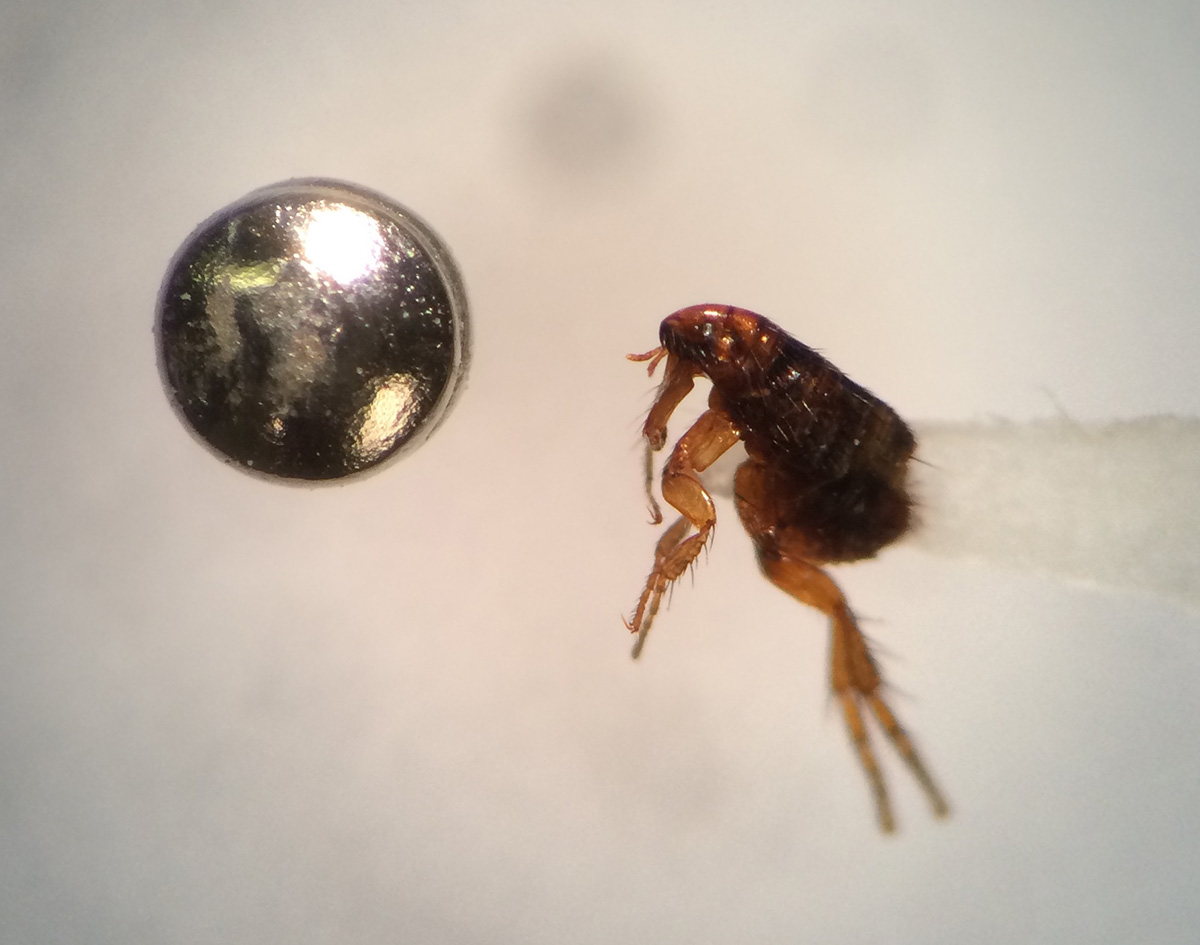
By Kait Chapman, Extension Educator in Lancaster County
While insect activity slows for the year, there may still be problems that arise indoors. Fleas, for example, are small, wingless insects that feed on blood and are most commonly found in homes with pets. And just like other “bitey” bugs, they can cause itchy bites, allergic reactions and may even transmit diseases and parasites like tapeworms.
FLEA HABITATS
While fleas can bite people — dogs, cats and other animals serve as their primary hosts. Understanding the flea life cycle and where fleas are commonly found is a crucial component to their control. Fleas undergo a complete metamorphosis with four life stages: egg, larva, pupa and adult. While adults are commonly found on our furry companions, flea larvae and pupae live off of their hosts, developing in carpets, pet bedding and on furniture. Fleas can even be found outdoors in yards and other areas where pets frequent or wildlife is present.
SIGNS OF FLEAS
The first signs that there may be a flea problem in the house is excessive scratching for pets and bites, particularly around the ankles, for people. Taking a closer look to diagnose the problem is important. Adult fleas are small, about 1/8 inch long, brown in color and flattened from the side. They are also excellent jumpers, capable of jumping 150 times their height or up to 8 feet vertically.
FLEA CONTROL STRATEGIES
• Pet Treatment: Consult with a veterinarian and treat all pets in and outside the home. Treatments commonly come in the form of shampoos, oral or topical medications or flea collars. Regularly groom and remove fleas using a specialized flea comb.
• Home Treatment: Wash and dry pet bedding and vacuum the home regularly, paying close attention to areas that pets most frequent. Consider contacting a pest management professional for insecticidal treatments in the home.
• Outdoor Treatment: Also consider outdoor treatments to lawns and landscapes. Removal or exclusion of wildlife in or around the home may be necessary.
While fleas can be an itchy problem, it takes an integrated approach of non-chemical and chemical methods for successful management.